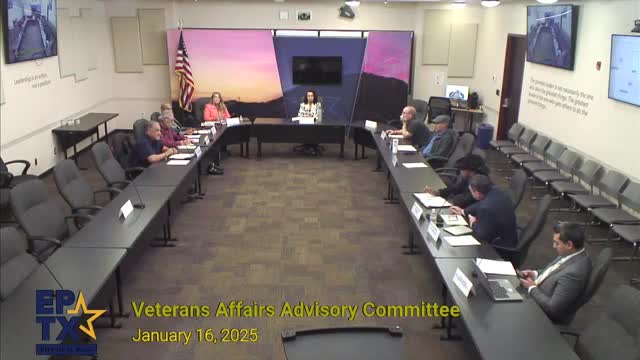Article not found
This article is no longer available. But don't worry—we've gathered other articles that discuss the same topic.
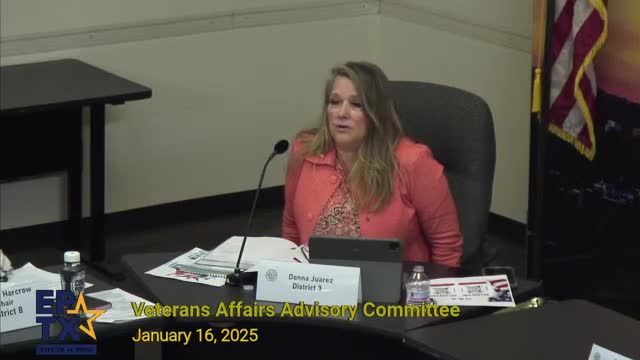
Committee votes to request city resolution changing its name to Veterans Advisory Committee
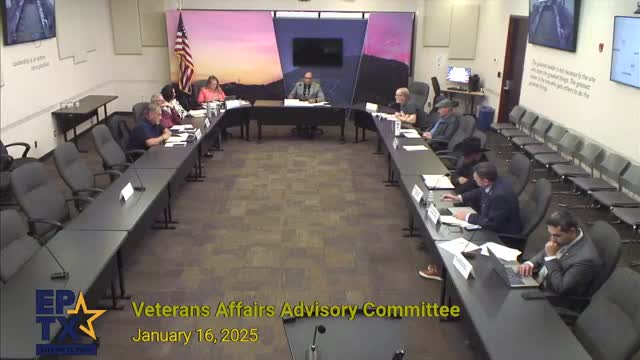
Committee names subcommittee chairs, prioritizes homelessness response and flags 988 crisis-line gaps
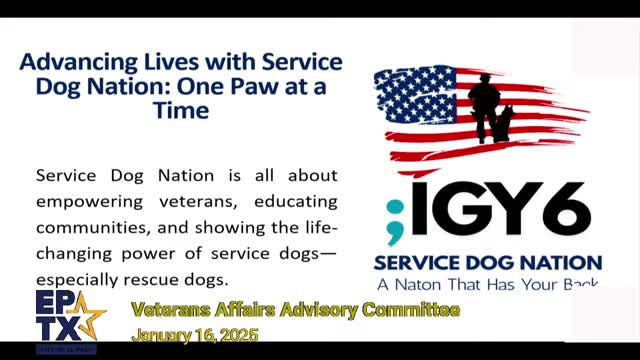
Service Dog Nation urges local education on service animals, warns against certification scams and cites House Bill 4164
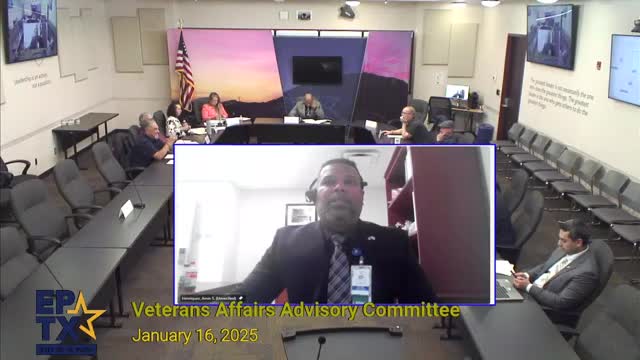
VA interim director’s staff says core VA services would continue in shutdown; My HealtheVet account changes set for Jan. 31
